Advertising Agency Contract
-
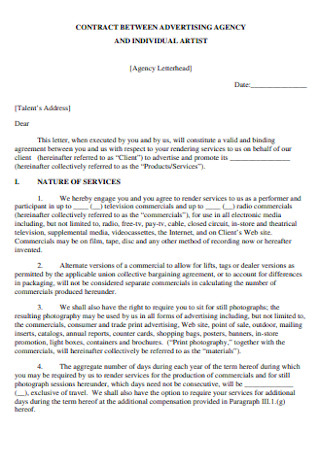
Artist Advertising Agency Contract
download now -
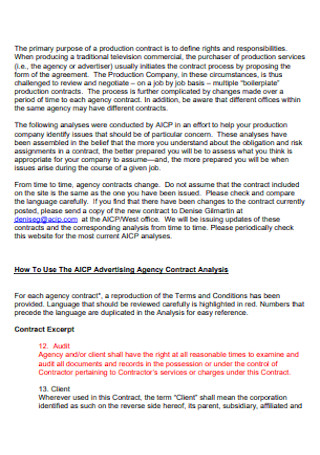
Advertising Agency Contract Format
download now -
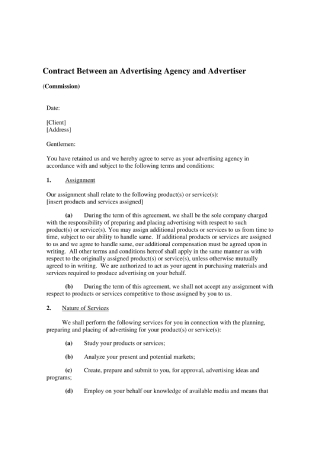
Sample Advertising Agency Contract
download now -
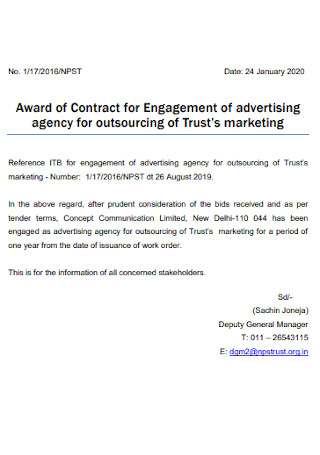
Contract for Engagement of advertising Agency
download now -
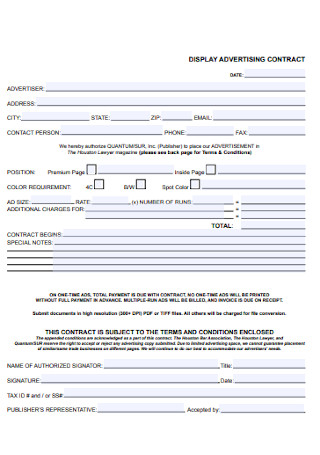
Display Advertising Agency Contract
download now -
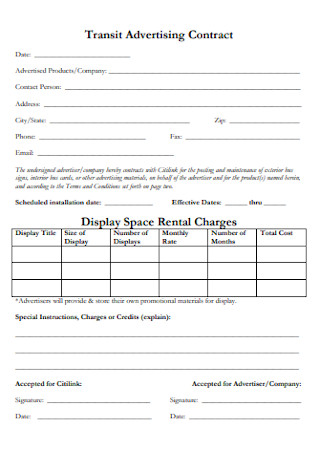
Transit Advertising Agency Contract
download now -
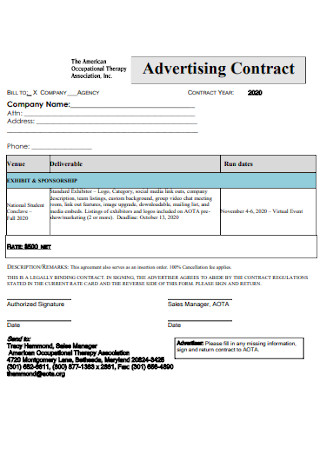
Company Advertising Agency Contract
download now -
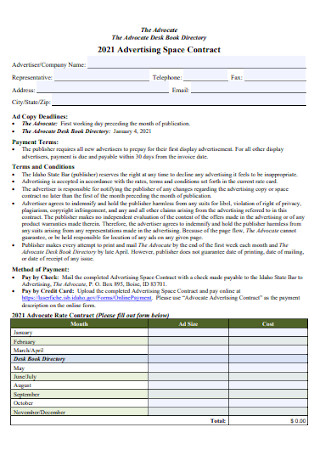
Advertising Space Agency Contract
download now -
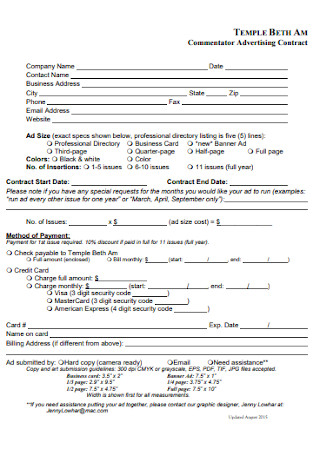
Commentator Advertising Agency Contract
download now -
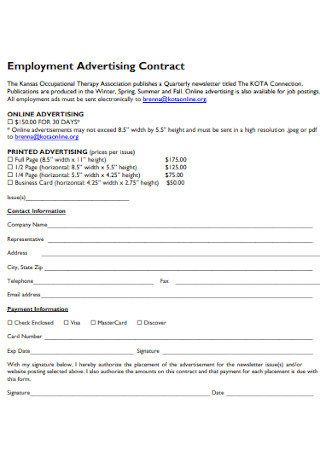
Employment Advertising Agency Contract
download now -
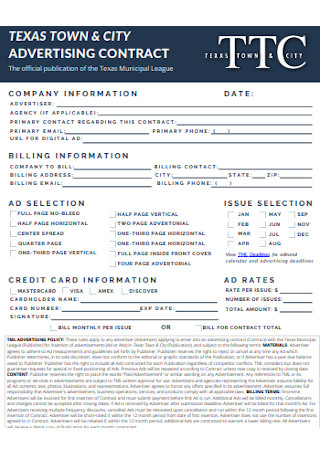
City Advertising Contract
download now -
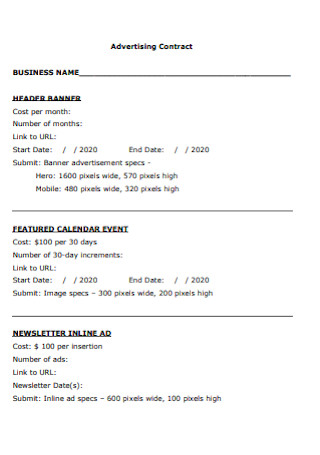
Tourism Advertising Contract
download now -
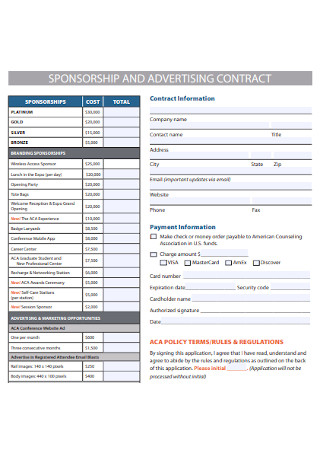
Sponsorship and Advertising Contract
download now -
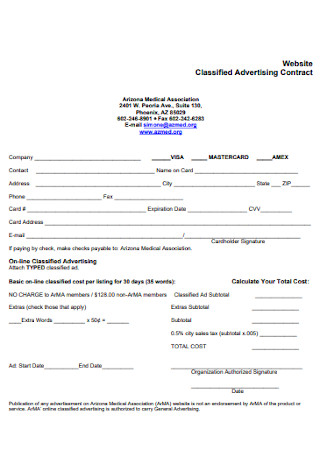
Classified Advertising Contract
download now -
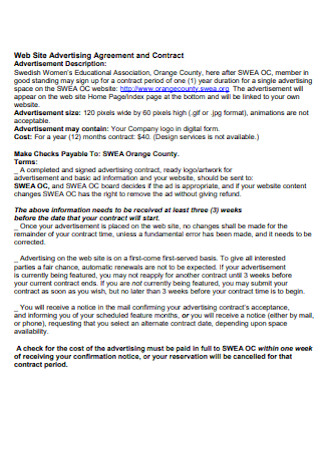
Web Site Advertising and Contract
download now -
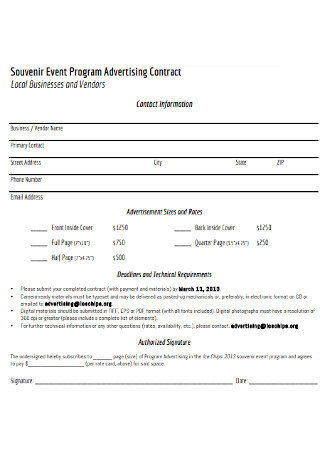
Event Program Advertising Agency Contract
download now -
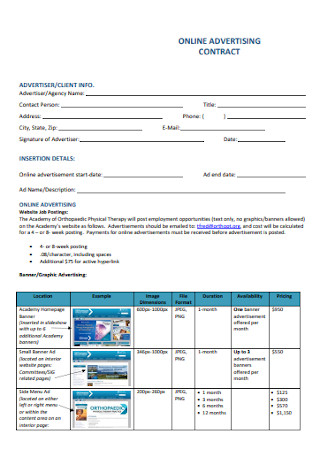
Sample Online Advertising Contract
download now -

Program Advertising Agency Contract
download now -
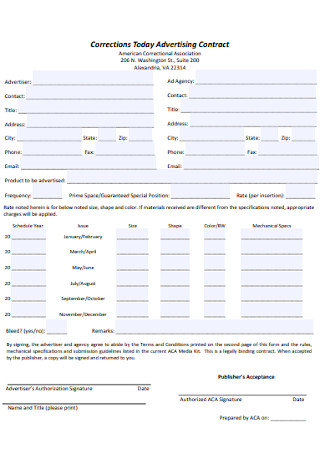
Corrections Today Advertising Agency Contract
download now -
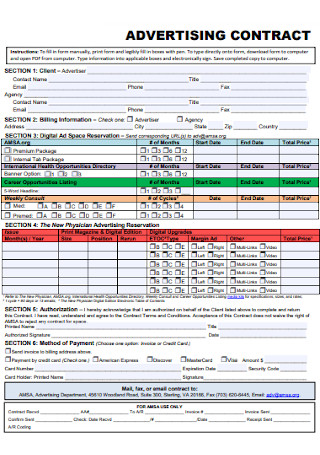
Student Advertising Agency Contract
download now -

Digital Advertising Agency Contract Format
download now -
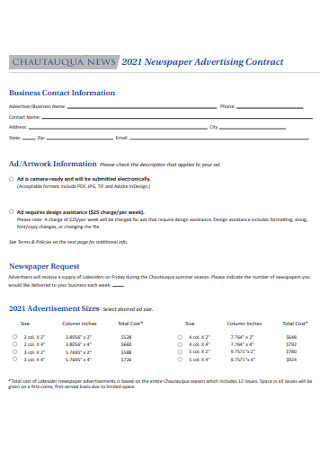
Newspaper Advertising Agency Contract
download now -
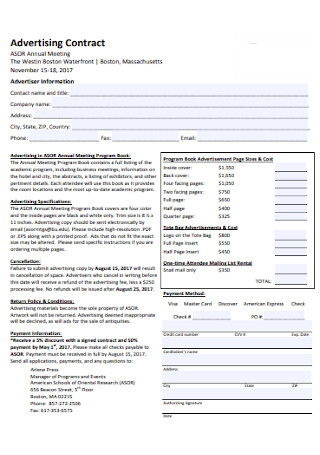
Meeting Advertising Agency Contract
download now -
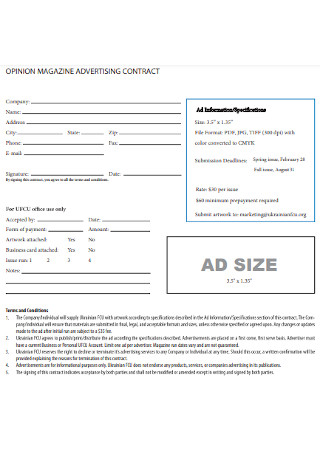
Opinion Magazine Advertising Agency Contract
download now -
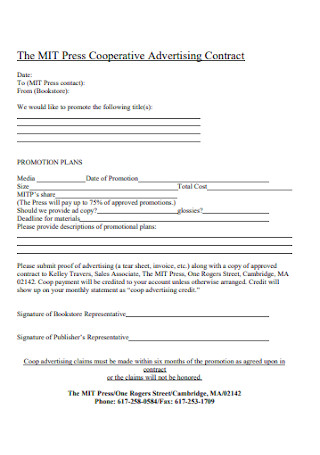
Cooperative Advertising Agency Contract
download now -
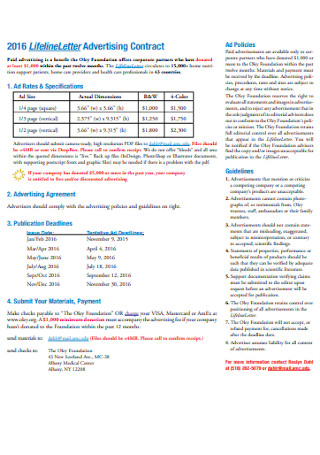
LifelineLetter Advertising Agency Contract
download now -
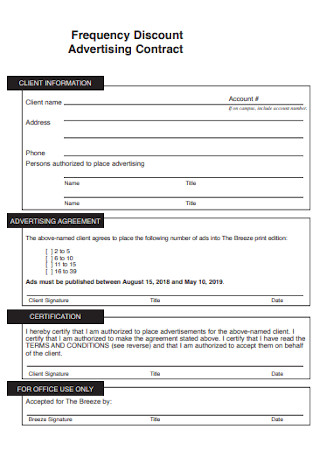
Frequency Discount Advertising Agency Contract
download now -
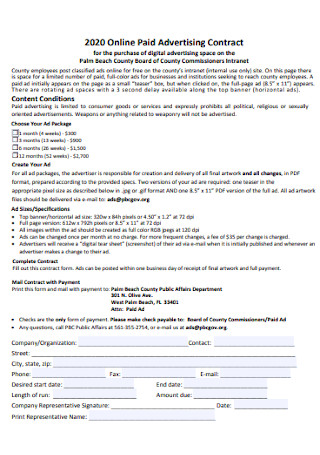
Online Paid Advertising Agency Contract
download now -
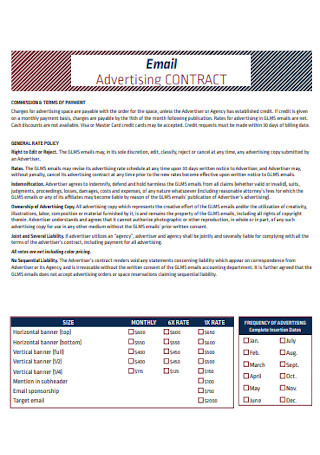
Email Advertising Agency Contract
download now -
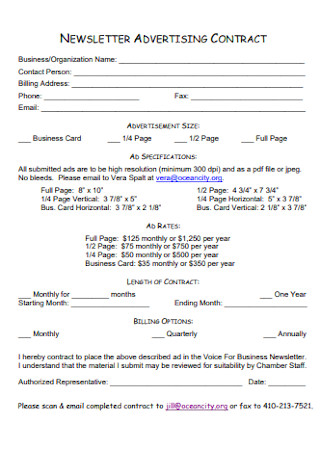
Newsletter Advertising Agency Contract
download now -
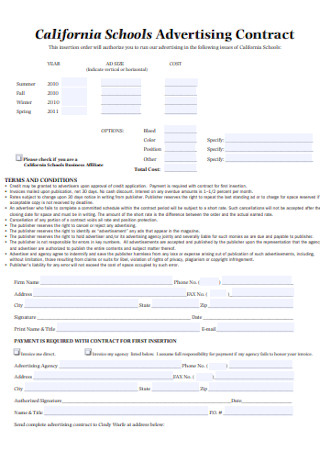
Schools Advertising Agency Contract
download now -
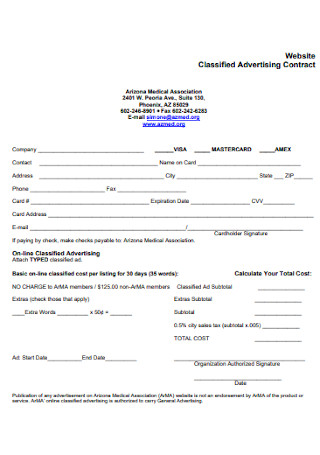
Classified Advertising Agent Contract
download now -
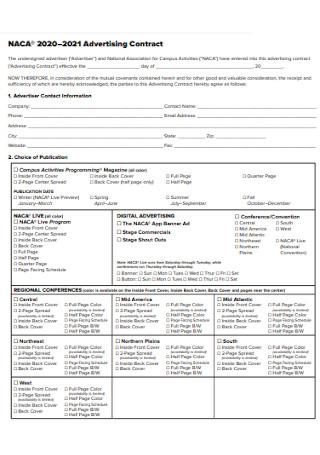
Standard Advertising Contract
download now -
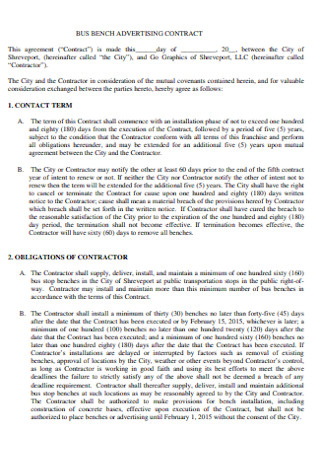
Bus Advertising Agency Contract
download now -
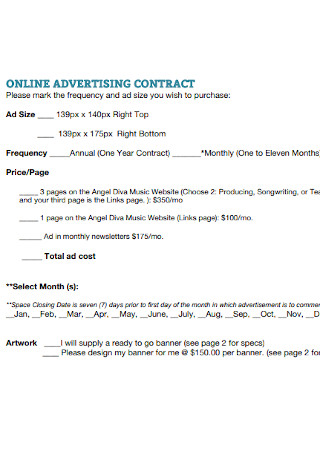
Online Advertising Agency Contract
download now -
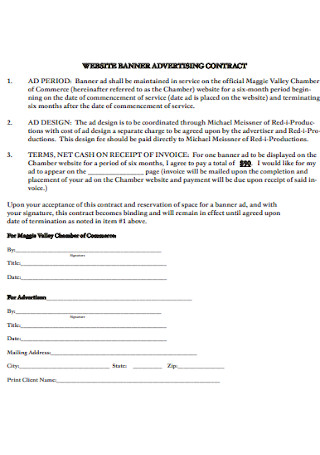
Website Banner Advertising Agency Contract
download now -
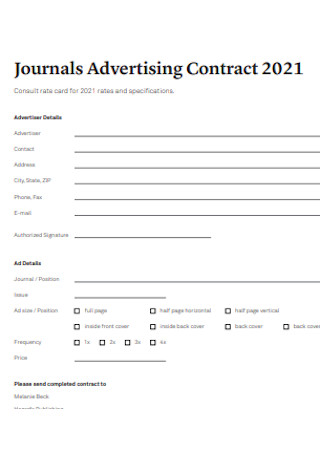
Journals Advertising Agent Contract
download now -
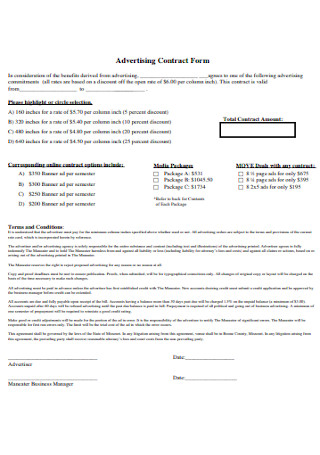
Advertising Agency Contract Form
download now -
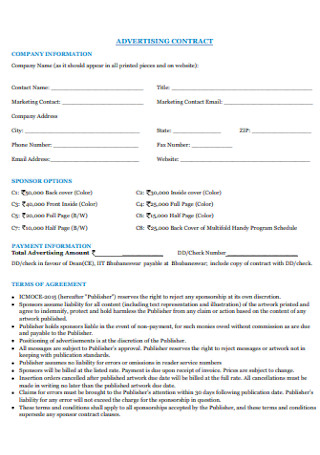
Simple Advertising Agency Contract
download now -
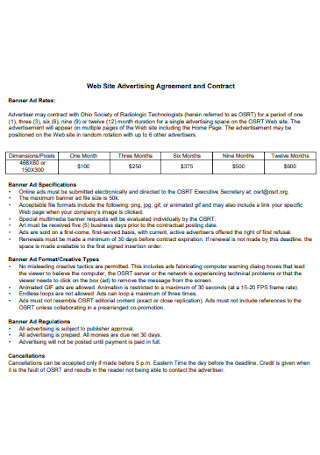
Web Site Advertising and Agency Contract
download now -
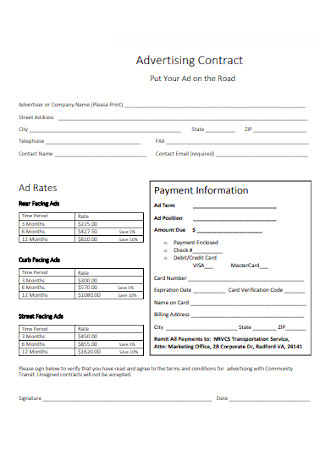
Advertising Payment Agency Contract
download now -
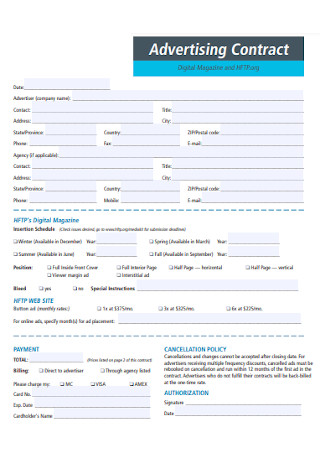
Advertising Agency Contract Format
download now -
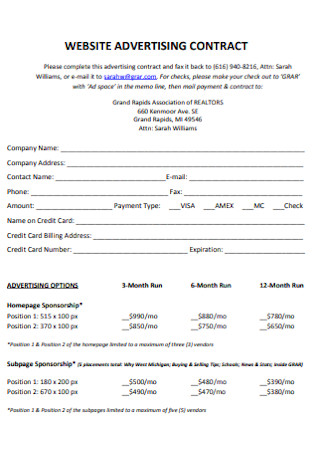
Website Advertising Agency Contract
download now -

Transit Advertising Agency Contract
download now -
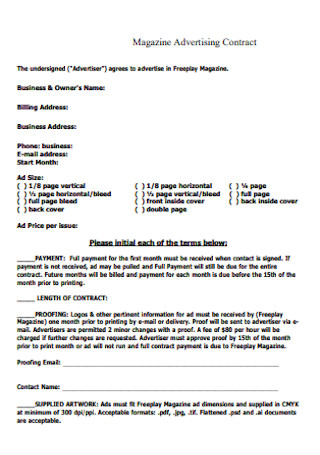
Magazine Advertising Agency Contract
download now
FREE Advertising Agency Contract s to Download
Advertising Agency Contract
What is an Advertising Agency Contract
Benefits of an Advertising Agency Contract
The Roles of an Advertising Agency
Key Items to Include in Your Advertising Agency Contract
FAQs
What is an Advertising Contract?
What is a Marketing Agency Agreement?
How Do You Write an Agency Contract?
This is something that an advertising agency specializes in. They function to advertise a business’ products or services in the market through their professional knowledge of the business community and obviously, the market itself. That being said, to secure a relationship with a reliable agency, an Advertising Agency Contract shall be provided. To have a better understanding of what this contract is, this article will provide its most basic information. We have also prepared samples that you may be able to take inspiration from if you are to start drafting one of your own now!
What is an Advertising Agency Contract
An advertising contract is a legally binding agreement between a client, usually a business company, and the advertising agency they prefer to market their goods and services. It details the obligations that both parties have to strictly observe and fulfill towards each other otherwise, penalties and compensations should be issued which the contract must also indicate. This would then mean that an Advertising Agency Contract protects both parties should there be a breach in the contract or a termination due to good cause. It is essentially a commitment to render the services under the terms and conditions that are mutually agreed upon by both parties.
Benefits of an Advertising Agency Contract
While contracts in general come with a lot of benefits, we list down the primary benefits that an Advertising Agency Contract in particular can result in.
1. It makes meaningful business relationships.
Contracts, in general, are binding arrangements between the parties involved in a business arrangement meaning a cordial relationship that clearly and precisely understands the nature of its relationship is being made. If the two parties involved and for this case the business client and the advertising agency, are in mutual and harmonious agreement with the conditions that they both have established, there is a positive likelihood that the results produced will be done in a timely fashion and of the best qualities and conditions which both parties can benefit from: The business client is able to boost their brand engagement and visibility through the advertisement placements while the advertising agency gains another satisfied customer that can potentially refer them to other businesses.
2. It protects both parties from contract disputes.
As mentioned previously, an advertising agency contract protects both the business client and the agency themselves. This is so because like most contracts, an effective Advertising Agency Contract should clearly define the services to be rendered by both parties and the guidelines they both should abide by. If either of the parties believes the other breached the contract or did not meet whatever is outlined in the document, they can refer to the contract to confirm whether or not a clause or a provision has been breached. Not only that, but since a contract states what is to be done in the case of breach of contract or unlawful misconduct, it would be safe to assume that both parties are aware of what they must do and this in turn would allow them to perform their contractual obligations to avoid misunderstandings that can potentially turn into large disputes that will do even more harm than good, with the worst-case scenario being the dispute ending up in a lawsuit that can drag for months and maybe even years which consequently, can drag out the funds supposedly meant for your business and even personal savings.
3. It establishes and manages expectations.
With both parties in agreement of what is to happen once the contract is signed, it should be understandable if they were to establish expectations that should be met. from an increased projection inclined to success. In fact, as the contract is being made, there should already be an imagined output that you want to target that you believe is the best for your business. These expectations fall more on the advertising agency since once the contract is signed, the business clients are essentially allowing them to steer the wheel in terms of expanding the brand’s engagement through their advertising ideas and its implementation. They are also in control of materializing whatever the client envisions for their business and garner them the desired audience and because the client turned to their services, they are expected to meet advertising goals. However, while the ad agency is expected to produce high-quality advertising pieces through elaborate stunts or just in the right way that can make accessible the brand to the general public, the contract is able to manage these expectations to a normal amount that should first and foremost align with what was agreed upon. Besides, the responsibility of fulfilling these expectations are not solely shouldered by the advertisement agency as the contract is still a two-way arrangement that both parties have participated in to indicate the terms and conditions both must perform under and comply with.
4. It allows both parties to perform well.
Because both parties have an understanding of the full scope of work that must be done, it is expected that they are to work to the best of their abilities. A legally binding document and a written one at that also increases the pressure to complete the tasks and enforce proper and diligent work ethics. This solidifies the relationship of both parties that can motivate for a smooth working process and encourage future collaborations should the project come to an end and the contract faces its inevitable closing seeing that there is already a relationship made built on trust and assurance that work can get done.
The Roles of an Advertising Agency
To stay afloat in such competitive markets such as the business industry, it is important to constantly sell your products and services through a manner that the market can easily consume. Especially with the advent of technology, the ways through which you can present your brand have multiplied and while this variety of marketing can be beneficial, it can also be the reason why these digital platforms can be oversaturated.
Advertising agencies, with their professional knowledge and skills, can come up with an advertising and marketing plan that is specific with the framework of the business, product and brand and should aim to triumph over this oversaturation and still get the brand to be visible to the general public.
Key Items to Include in Your Advertising Agency Contract
The items below are only some of the essential elements found in an Advertising Agency Contract that despite the difference of the terms and conditions that can be established depending on the kind of project, these components will always be found.
1. Name the Advertising Agency and the Client
Firstly, the contract should be able to detail the most basic personal information of the parties involved in the legal agreement. This personal information includes the names that are associated with the business and the corresponding formal addresses where they are legally registered and vice versa with the advertising agency. Although this component is common, it is just as essential since clarifying who the contract is bound to mitigates forms of confusion in terms of accountability and in the case that a conflict arises, legal actions can take place.
2. Scope of Work
A basic but also crucial component in your Advertising Agency Contract is how it explicitly and precisely defines the project’s scope of work. A well-written scope of work ensures the agency must only provide the services specified in the contract. This avoids loopholes in the contract that if not careful, either of the parties can manipulate and work to their advantage such as the client demanding more responsibilities outside of the scope of work or the agency demanding for additional fees. This section of the contract should be able to identify what the project is exactly about, what the client needs from the agency that in turn, the agency should affirm plus additional services that the agency can provide to best actualize the client’s vision and even the number of revisions that the client can allow the agency to make, that way, there is an added pressure to come up with a definite plan pronto especially if there is a deadline to be met that is fast-approaching.
3. Contract Duration
The contract must also include when the contract is to take effect, for how long it will be in effect and when it shall be terminated. It must clearly define when the project must be completed so that when it does, the advertising agency can submit the final output and the business client can make the final payment. This section should also describe the terms as to how payment and submission will be made for example, should the final payment be made before the final product is submitted or the opposite where the final output should be submitted beforehand before the agency is to receive the final payment.
4. Payment and Payment Procedure
The contract should be able to detail if media costs will be invoiced, when it will be issued and through what channels will it be settled. Set up a clear payment schedule along with the timeline through which deliverables must be made especially if they are to be paid upon submission. Outline the total amount and what should happen if payments are overdue or if the payment in itself can be refundable.
5. Copyright and Confidentiality
A clause must be provided stating how all of the materials such as the documents, files, drafts, designs, and codes or anything pertaining to the project will be used, stored, and reproduced should the agency allow it. In the case that reproduction will be prohibited, that must also be indicated as well to protect the agency’s intellectual property. This clause shall indicate if the agency retains their rights to full ownership of the final product or if the business client were to acquire property rights of the product, the clause shall explicitly state through what extent the client can make use of the product whether they can modify, develop and sell for commercial purposes if need be. To end this provision in the contract is the detailing of the legal actions that are to be taken if this section should be violated.
6. Term and Termination
While an abrupt termination is something both parties hopefully should hope to avoid, should a situation arise, the section should be able to expound on the guidelines that either of the parties that will terminate the process should undergo. However, the party should still be given the chance to be notified and a period before the contract will be completely terminated regardless of whether or not a reason exists. This section shall also indicate that outstanding payments should still be paid.
7. Breach of Contract
Describe what will happen when either the business client or the advertising agency were to fail in meeting their legal obligations. Assert what is to happen to the party that does not live up to the end of the bargain like for instance, not reimbursing the other party or issuing refunds. A clause can also state that termination of the contract will be effective immediately following the breach.
FAQs
What is an Advertising Contract?
An Advertising Contract is a legally binding agreement between an advertising agency and a business client. It outlines the terms and conditions that both parties should comply with and what should happen if either of the parties will violate it.
What is a Marketing Agency Agreement?
Similar to an Advertising Agency Contract, a Marketing Agency Agreement establishes the terms and conditions that a marketing professional and a client has mutually agreed upon. It includes a projection of the sales, the offered payment rates and the expectations needed to be met by both parties involved and when each can enjoy the services in the arrangement.
How Do You Write an Agency Contract?
Following the brief outline of what is included in an Advertising Agency Contract, you can start by citing the parties involved in the agreement. You can then proceed with defining the following:
- Scope of Work
- Contract Duration
- Payment and Payment Procedure
- Copyright and Confidentiality
- Term and Termination
- Breach of Contract
The key to making an effective contract is to be specific in the details of the terms and conditions both parties are to agree on. It’s the most sure way to protect each other from contractual disputes and ensure that both parties will commit to the obligations.
